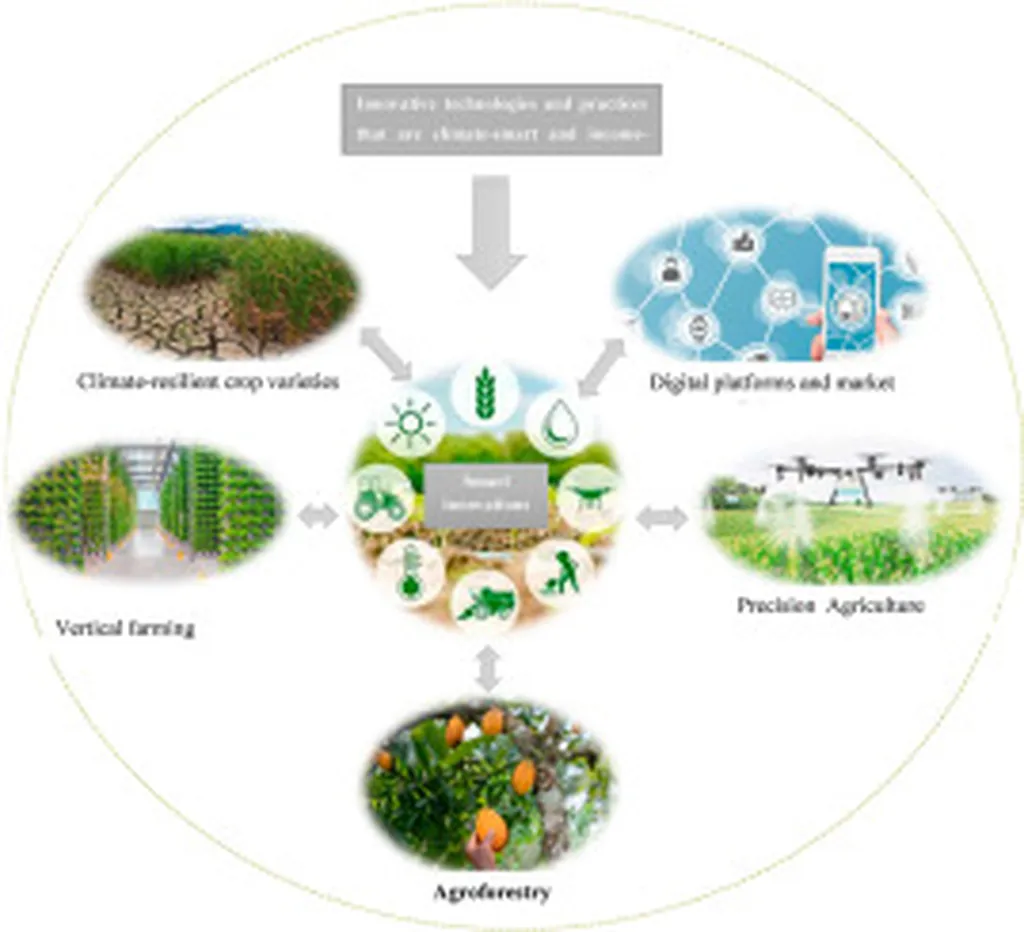In the heart of the global effort to combat climate change, a new study has shed light on the pivotal role of Agriculture Extension and Rural Advisory Services (AERAS) in fostering climate-smart agricultural systems. Published in the Journal of Sustainable Agriculture and Environment (translated as “Journal of Sustainable Farming and Environment”), the research, led by Md Maruf Billah from the Global Centre for Environmental Remediation at the University of Newcastle, Australia, offers a comprehensive systematic review of how AERAS can drive sustainable farming practices.
The study, which reviewed 47 articles from 2000 to 2024, reveals that the majority of research has been concentrated in developing and least developed nations, particularly in Africa and South Asia. This geographical focus underscores the urgent need for climate-smart agriculture in regions most vulnerable to climate change.
One of the key findings is that the diffusion of innovations and collaboration with multiple stakeholders is the foremost role of AERAS, accounting for 68.1% of the research. “This highlights the importance of knowledge sharing and partnerships in driving agricultural innovation,” says Billah. “When farmers and advisors work together, they can implement practices that are both sustainable and economically viable.”
The study also identifies capacity building and human resources development as crucial roles for AERAS, with 63.8% of the research emphasizing this aspect. “By investing in the skills and knowledge of farmers, we can enhance their resilience and adaptability to climate change,” explains Billah.
However, the research also points out significant challenges, including ambiguous roles, maladaptation, poor coordination, and geographical disparities. These issues underscore the need for clearer guidelines and better coordination among stakeholders.
The implications of this research are far-reaching, particularly for the energy sector. As the world shifts towards renewable energy sources, the demand for sustainable agricultural practices will only grow. Climate-smart agriculture not only helps mitigate climate change but also ensures food security, which is crucial for stable energy markets.
“This study provides a roadmap for policymakers and agricultural extension services to enhance their impact,” says Billah. “By focusing on demand-driven extension services and supporting smart farming systems, we can create a more sustainable and resilient agricultural sector.”
As the world grapples with the challenges of climate change, the role of AERAS in promoting climate-smart agriculture cannot be overstated. This research offers valuable insights and practical recommendations that can shape future developments in the field, ultimately contributing to a more sustainable and secure future for all.

